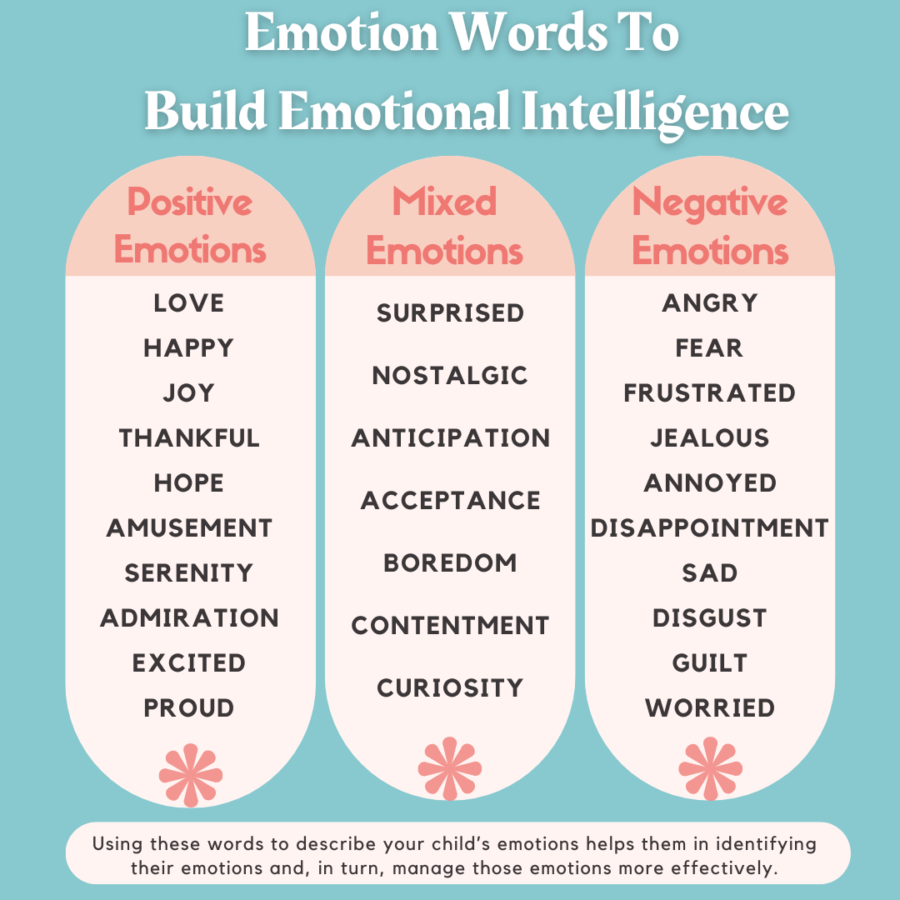It’s not a big deal.” “You’re being ridiculous.”
Ever hear those words when you were a child as you were divulging your feelings about a particular feeling or incident that was bothering you at that time? How did you feel when this was the response to your vulnerability?
People experience a wide range of emotions. Children, in particular, often struggle to understand or express these feelings. It is important to support children in managing their emotions in healthy ways so they develop effective coping skills. By implementing strategies such as listening with full attention, acknowledging their feelings, and helping them find words to describe their emotions, we can help children in navigating their emotional world. Read below to find out how these three strategies can be applied effectively.

1. Listen with Full Attention
One of the most critical things we can do to help children cope with their feelings is to listen to them with full attention. When a child feels heard, it provides them with a sense of security and validation, showing them that their feelings and thoughts are important.
Listening with full attention means complete focus on the child with no distractions, maintaining eye contact, and being fully present in the moment. Showing genuine interest in what the child is saying, without interrupting, judging, or jumping in with advice permits the child to express themselves freely, which can be extremely comforting.
For example, if a child is upset after getting into an argument with a friend, taking the time to sit down and listen attentively can help them feel supported. Simply being there, without hijacking the conversation, creates a safe space for the child to open up and share their feelings.
2. Acknowledge Their Feelings
Acknowledging a child’s feelings is a powerful way to show that their emotions are normal, valid and understood. This doesn’t mean you have to agree with everything they say; instead, it is about recognizing their feelings as real and important.
To acknowledge a child’s feelings, you can use phrases like, “I can see you’re feeling really angry right now,” or “It sounds like that made you feel sad.” These statements let the child know that it’s okay to feel what they’re feeling and that their emotions are being taken seriously. It is difficult for a child to think clearly when they are being bombarded with questions, advice, or criticism. Expressions such as “I see” or “It sounds like” also give the child the opportunity to explore their feelings and thoughts, and may even help them come up with a solution to their initial problem.
For instance, if a child is frustrated because their sibling broke their toy, acknowledging their anger by saying, “I see why you are upset; it is frustrating when something you care about gets broken,” can help them feel validated. This acknowledgment can often diffuse overwhelming emotions and prevent them from heightening further.
3. Use a Word to Describe Their Feelings
Helping children assign words to their feelings is a critical component in developing their emotional intelligence. When children can identify and name their emotions, they gain a better understanding of what they are experiencing, which can make it easier for them to manage those feelings.
Using words to describe emotions can be as simple as saying, “It seems like you’re feeling disappointed,” or “You sound worried.” Providing a vocabulary for their feelings helps children recognize and effectively express their emotions. This not only improves communication but also helps them learn to regulate their emotions.
For example, if a child is nervous about a big test, you might say, “It sounds like you’re feeling anxious about the test. That’s completely normal.” By labeling the emotion, you’re not only acknowledging what they’re feeling but also helping them understand that their emotions are valid and that they are not alone in feeling that way.

Assisting children in coping with their feelings is an essential part of their emotional development. By exhibiting a caring attitude by listening with full attention, acknowledging their feelings, and helping them find the right words to describe their emotions, we can extend the support and guidance they need to traverse their emotional experiences. These strategies cultivate emotional awareness and resilience, empowering children to understand and manage their feelings in healthy and productive ways. As they get older, this knowledge will be beneficial, preparing them to handle life’s challenges with more confidence and emotional maturity.


